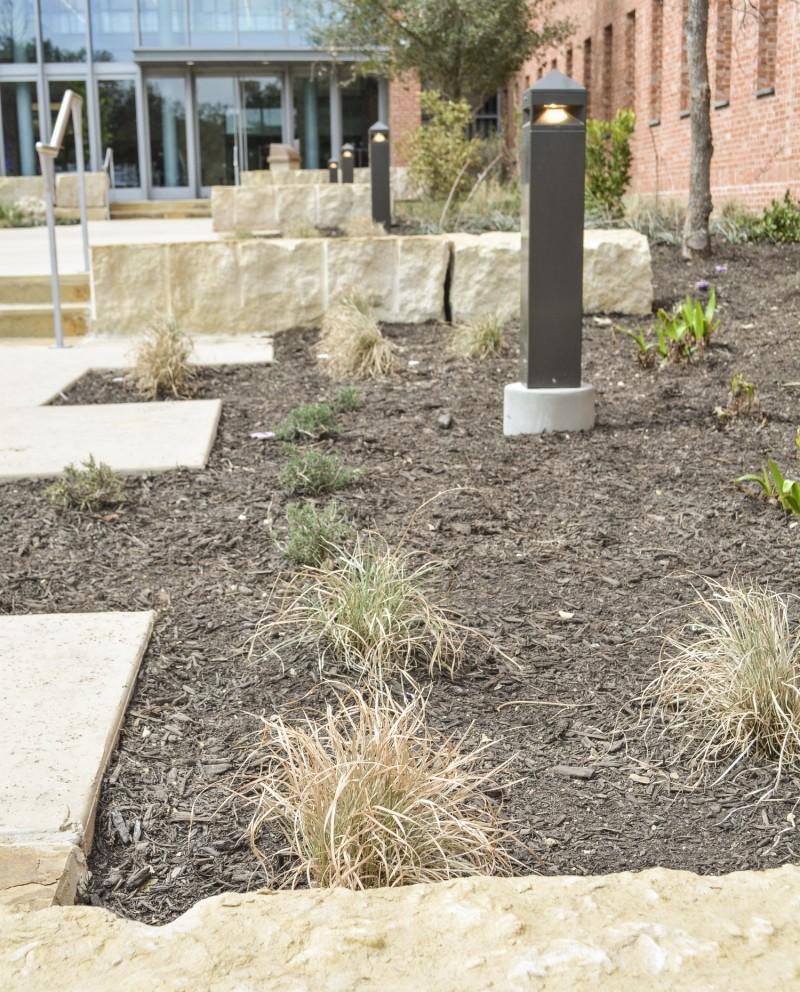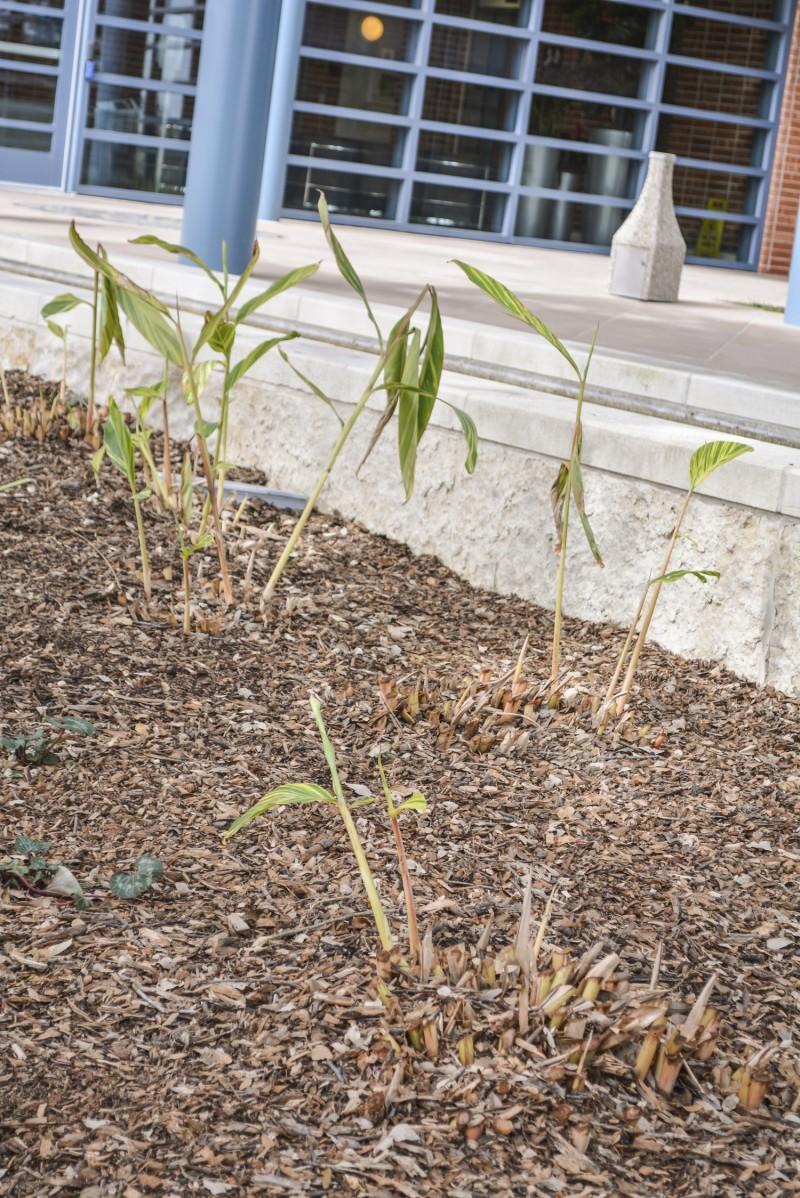A series of late freezes in the San Antonio area raises questions about the sustainability of plant life on Trinity University’s campus.
According to Mike Schweitzer, acting director of buildings and grounds, Trinity has progressively transformed its landscape from “formal” live oaks and St. Augustine grass to more drought resistant and native plant life or “water-wise” planning.
“Right now as far as irrigation, our campus is probably 99 percent on recycled water. I have the luxury of watering as often as I want to water but still in compliance with the hours of the day under the drought restrictions,” Schweitzer said. “That has opened up some avenues for us to plant some different things, but you don’t want to go crazy. You want to continue to respect what’s going on in the community around you, because everyone around us is in drought restrictions.”
According to Schweitzer, plant life characterized as “annual” tends to be brightly colored and less sustainable, having to be removed after experiencing harsh conditions. Whereas perennial plant life can offer some color but more sustainability, growing back at the roots after a sustained drought or freeze.
“We’ve moved more in the direction of perennial planning over the last few years over annual color. While we do continue to have spots of annual color, because it is important to have that color, it’s not nearly the areas that we used to plant,” Schweitzer said. “We’ve gone back to more perennial plantings where you get draught or freeze, they may freeze to the ground, but they are going to come back the next year.”
Student-organized plant life also has been aimed towards sustainability in the San Antonio climate, according to junior Laura Prentice, co-president for Students Organized for Sustainability (SOS). The SOS community garden, outside of the Storch Memorial Library building, only experienced the loss of aloe vera plants this winter.
“In the late fall we planted a lot of things that are cold hardy. They are winter plants, so like some broccoli, cauliflower and kale. They are all just really cold tolerant. They wouldn’t do well in Michigan in the winter, but they can take a Texas freeze, or two, or five,” Prentice said. “We definitely do seasonal planting, for the San Antonio region, specifically. We get advice from local nurseries about what to plant and there are also a bunch of planting calendars that we look at.”
While the garden outside of Storch has survived winter, plants outside of the Center for Science and Innovation (CSI) have experienced strife due to recent freezes. According to Schweitzer, plant life surrounding CSI was chosen and planted by the contractors of the new building, Vaught General Contractors and Rialto, as part of the architecture.
“That was a package deal. We didn’t do any of that installation or the purchasing of those plant materials. They were all purchased by the contractor,” Schweitzer said. “Part of those don’t look very good right now because we took some pretty heavy freezes. This has been an unusual winter since Thanksgiving”¦ So a lot of that new material is suffering a little bit right now, and the jury is still out on how it is going to completely recover.”
According to Schweitzer the lives of the newly planted Katie Ruellia plants – a blue hybrid Mexican petunia – around CSI depend on the timing and progression of the stock from small four inch pots to gallon pots, allowing the plants to root sufficiently before the freeze and return this spring. Other campus plant life has most likely sustained despite its bleak appearance and will regrow from the roots after being cut back.








